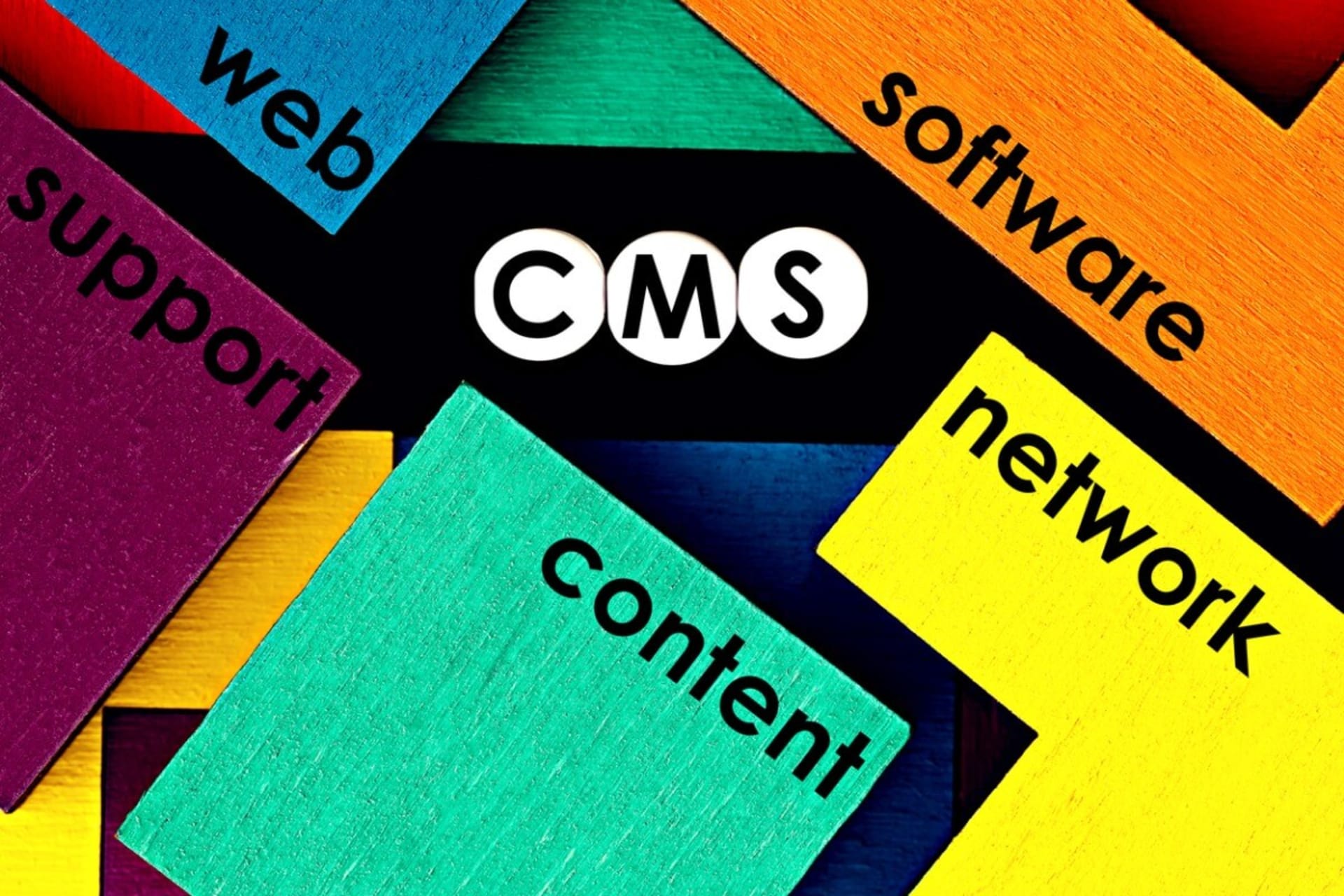CMS Development Company
Our CMS development services already power dozens of active engagements. We typically land our teams within 2 weeks, so you can start shipping top quality software, fast.
500+ companies rely on our top 1% tech talent.
CMS Development Services We Provide
Custom CMS Development
Custom CMS solutions adapt to your business—not the other way around. They streamline workflows, manage users effectively, and organize data for better efficiency and scalability.
Our developers use languages like PHP, Python, JavaScript and tools like Apache and Cloudflare to build systems that fit your needs. From user permissions to content flow, we create CMS platforms that grow with your business.
CMS Integration & Migration
Upgrade your systems with a CMS that works seamlessly with your existing tools. Whether you’re adding features, consolidating platforms, or migrating to a new CMS, we make the process smooth and hassle-free.
Using APIs and webhooks, our team ensures every system works together perfectly. We handle the heavy lifting to keep your data consistent and your operations running without interruptions.
Content & Data Migration
Moving to a new CMS can be complex, but we simplify the process. From structured data to unstructured content, we migrate everything efficiently while maintaining data integrity.
Our developers use custom scripts, API data exchange, and database transformation to transfer your assets smoothly. We prepare your CMS for future growth and seamless integrations.
Mobile App Integration
Connect your mobile apps with a powerful CMS to unlock advanced features. From payment gateways to social media APIs, we bring everything into one ecosystem.
Our developers enhance your app with tools like real-time communication, location-based features, and analytics to improve user engagement and functionality.
SEO Optimization & Analytics
Stay visible online with SEO-focused CMS solutions. We refine your on-page and technical SEO while integrating tools to analyze and improve your performance.
Using platforms like Ahrefs and Screaming Frog, we help you track results, understand your audience, and create a data-driven content strategy that delivers measurable ROI.
CMS Security, Testing & Maintenance
Protect your CMS from threats with advanced security and regular maintenance. Our strategies prevent breaches, boost performance, and keep your platform reliable.
We implement OWASP guidelines, secure HTTPS/SSL protocols, and use tools like Selenium for testing and JMeter for performance. Your CMS will be safe, efficient, and ready for anything.
User Experience Design
A great CMS prioritizes user experience. We create intuitive designs that make navigation easy and interactions meaningful.
Using tools like Figma and Adobe XD, we design wireframes and prototypes focusing on accessibility and user feedback for a CMS that feels effortless to use.
API Development & Integration
Expand your CMS with custom APIs for better functionality. From REST to GraphQL, we design integrations that handle everything from data queries to secure transactions.
We also use OAuth and JSON Web Tokens for advanced authentication to protect your data at every stage.
Performance Optimization & Scalability Solutions
Don’t let bottlenecks slow you down. We optimize your CMS for speed, efficiency, and growth with caching, code optimization, and load balancing.
For scalability, we integrate cloud solutions, microservices, and CDNs to handle growing demands. Your CMS will be fast, reliable, and ready for the future.
Rolls Royce case study

Key Things to Know About CMS
Best Practices for CMS Software Development
As digital marketing evolves and customer expectations grow, CMS platforms need to keep up. These best practices make your CMS efficient, user-friendly, and adaptable.
A great CMS should work for both the end-users and the content creators. Here’s how to deliver an exceptional user experience:
Your content will look and function perfectly on any device—desktop, tablet, or smartphone. A responsive design automatically adjusts to screen size for a seamless experience.
Users should find what they need without confusion. Clear, logical navigation makes browsing intuitive and frustration-free.
With most web traffic coming from mobile devices, a CMS must load quickly, support touch interactions, and work smoothly on smaller screens.
Build inclusivity into your CMS with features like keyboard navigation, screen reader compatibility, and proper color contrast. These additions allow everyone to use your platform.
Avoid overly complex interfaces. Straightforward tools help content creators publish, edit, and organize content without extra hassle.
Whether creating a new CMS or enhancing an existing one, focusing on flexibility and performance is key. Here’s how we do that:
Write clean, maintainable code by sticking to widely recognized coding standards like PSR (PHP) and PEP 8 (Python). This approach keeps development consistent and reliable.
Frameworks like Symfony, Django, and Angular support modular design, making it easier to customize or upgrade your CMS without rebuilding from scratch.
Platforms like Git help track changes and manage team workflows, improving collaboration and reducing errors.
Backend improvements like query optimization, and frontend techniques like using CDNs and asynchronous loading, keep your CMS running fast and efficiently.
Use cloud solutions like AWS or Google Cloud for growth, and build APIs (REST or GraphQL) to handle evolving needs and integrations.
Regularly update the CMS core, plugins, and dependencies to protect against vulnerabilities. Use automated testing tools, like Selenium, to validate updates and prevent errors.
Protecting your CMS from threats and following data protection laws is crucial.
Role-based access control (RBAC) limits permissions based on user roles, reducing internal risks. Frameworks like Spring Security simplify implementation.
Implement password policies that require complexity and use multi-factor authentication (MFA). Identity providers like Auth0 or Okta add another layer of protection.
Automate backups to cloud storage (e.g., Amazon S3) and test restoration processes regularly to protect against data loss from attacks or failures.
Conduct audits to meet regulations like GDPR and CCPA. Encrypt sensitive data and anonymize personal information to minimize risks.
Regular upkeep keeps your CMS running fast and performing well.
Use tools like Google Lighthouse to measure load times, responsiveness, and other metrics. This data helps identify areas for improvement.
Keep your platform secure and fresh by updating components consistently. Tools like Composer simplify the update process.
Reduce file sizes for images and videos with tools like WebP to make pages load faster without losing quality.
Use server-side caching and tools like Varnish to deliver content quickly, even during high traffic.
Use tools like SEMrush to analyze your site structure, keywords, and backlinks, keeping your site optimized for search engines.
Why Choose BairesDev for CMS Development

Nearshore, Timezone-Aligned Talent
CMS development relies on seamless communication and real-time collaboration. Our developers in Latin America work within U.S. time zones, allowing for quick feedback, efficient teamwork, and smooth project management. With a shared cultural affinity, our team integrates easily with yours to deliver results.
Flexible Engagement Models
We tailor our services to your needs. Strengthen your team with skilled developers through staff augmentation, partner with a dedicated team focused solely on your project, or fully outsource your CMS development for end-to-end support.
Diverse Range of Solutions
From custom development and API integration to migrations and upgrades, we cover the full lifecycle of your CMS. Our team works with platforms like WordPress, Drupal, and Joomla or builds custom solutions to meet your unique needs. We ensure your CMS stays modern, secure, and efficient as your business grows.
Our process. Simple, seamless, streamlined.
During our first discussion, we'll delve into your business goals, budget, and timeline. This stage helps us gauge whether you’ll need a dedicated software development team or one of our other engagement models (staff augmentation or end-to-end software outsourcing).
We’ll formulate a detailed strategy that outlines our approach to backend development, aligned with your specific needs and chosen engagement model. Get a team of top 1% specialists working for you.
With the strategy in place and the team assembled, we'll commence work. As we navigate through the development phase, we commit to regularly updating you on the progress, keeping a close eye on vital metrics to ensure transparency and alignment with your goals.
Frequently Asked Questions
What can a custom CMS do that an off-the-shelf CMS can’t?
A custom CMS is built specifically for your business, offering unmatched flexibility and control. Unlike off-the-shelf platforms, a custom CMS can adapt to your workflows, integrate with your existing tools, and scale. It allows unique features tailored to your needs, such as advanced analytics, specialized user roles, or custom APIs. These capabilities make it an ideal solution for businesses seeking a customized CMS solution for their CMS project, eliminating the limitations of generic platforms.
How does CMS development improve website performance?
CMS development boosts website performance with clean, optimized code, caching mechanisms, and image compression. These improvements reduce load times, enhancing both user experience and search engine rankings. A custom CMS can also handle high traffic volumes and large content libraries without losing speed. Streamlining backend workflows allows faster content updates and efficient resource management. This makes a web content management system vital for businesses needing consistent, high-performance websites.
Can CMS development services support SEO?
Absolutely. Custom CMS development services can build in SEO features and custom enhancements. These can include clean URL structures, optimized metadata, schema markup, and faster site speed—all critical for improving search engine rankings. A custom CMS integrates with tools like Google Analytics or SEMrush to refine your SEO strategy. Focusing on technical SEO elements, such as mobile-friendliness and site architecture, optimizes your web content management system for visibility and success.
How secure are CMS platforms?
CMS platforms vary in security, but CMS development services can offer advanced protection tailored to your needs. This includes role-based access control to manage user permissions, data encryption for sensitive information, and regular updates to patch vulnerabilities. Firewalls, activity monitoring, and protections against threats like SQL injection and cross-site scripting (XSS) are often included. Custom CMS development services offer security features needed to minimize risks and protect your operations.
What industries benefit the most from CMS development?
Industries such as e-commerce, healthcare, education, media, and travel benefit greatly from CMS development. E-commerce businesses manage product catalogs and customer data efficiently, while healthcare organizations use customized CMS solutions for patient portals and medical records. Educational institutions rely on CMS platforms for online course management, and media companies use them to store and distribute content. Travel and hospitality industries depend on CMS platforms for booking systems and real-time updates. A web content management system provides the flexibility and scalability these industries demand.
How is a CMS different from a website builder?
A CMS is more robust than a website builder, designed to manage complex digital content and workflows. While website builders like Wix or Squarespace are user-friendly for smaller projects, they lack a CMS's advanced customization and scalability. A CMS supports custom user roles, third-party integrations, and growth-oriented features, making it a superior choice for businesses seeking customized CMS solutions with room to grow.
Can a CMS integrate with existing tools and systems?
Yes, CMS platforms are designed to integrate with CRMs, marketing platforms, analytics tools, and more. Custom CMS development allows seamless integrations tailored to your workflows. For example, a CMS can sync inventory with e-commerce platforms or automate campaigns through email marketing tools. These integrations create a unified ecosystem, enhancing efficiency and streamlining your CMS project.
What’s involved in migrating to a new CMS?
Migrating to a new CMS includes assessing your current platform, mapping data for proper alignment, and transferring content, features, and workflows. The process may involve redesigning elements, integrating APIs, and thorough testing to identify issues. Training is often provided to help teams transition smoothly. A properly managed migration creates a seamless shift to your new web content management system with minimal disruption.
Is a custom CMS suitable for small businesses?
Yes, a custom CMS is an excellent choice for small businesses with specific needs or growth plans. While the initial investment may be higher, the benefits of tailored functionality, improved performance, and scalability outweigh the costs. By eliminating unnecessary features and focusing on what matters, a customized CMS solution delivers long-term value and supports business success.
How often should a CMS be updated?
A CMS requires regular updates to maintain security, functionality, and compatibility with third-party tools. Updates address vulnerabilities, introduce new features, and improve performance. Scheduling maintenance, using automated tools, and performing testing keep your web content management system reliable and efficient. Staying proactive with updates avoids potential security risks and ensures smooth operation.
How Businesses Can Overcome the Software Development Shortage
BairesDev Ranked as one of the Fastest-Growing Companies in the US by Inc. 5000

See how we can help.Schedule a Call










